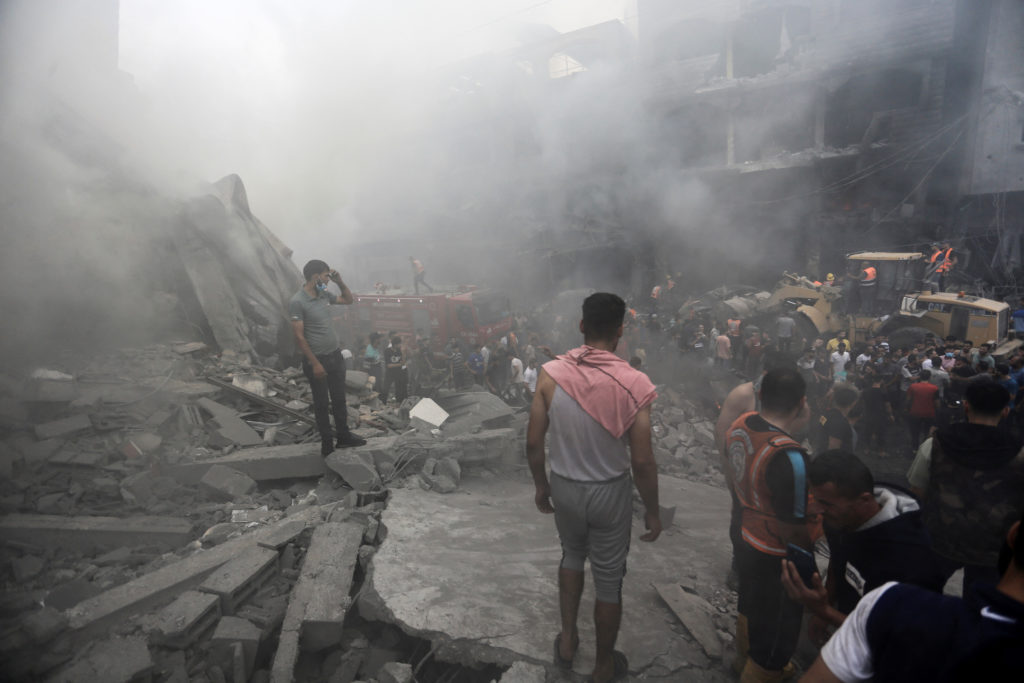In a dramatic escalation, the RSF stormed the beleaguered city of El-Fasher on Friday, engaging in a fierce seven-hour battle, according to eyewitness accounts shared with the BBC. This violence led to the RSF successfully commandeering a vital cattle market, a prison, and a military installation, highlighting their growing influence in the region. These developments mark a shocking turn in the ongoing conflict that has gripped Sudan for the past 15 months.
The RSF's current advance underscores the deteriorating situation in El-Fasher. Foreign observers, including representatives from the Norwegian Refugee Council (NRC), have characterized the city as a "death trap," rife with unrelenting shelling and widespread hunger. Mathilde Vu of NRC recounted harrowing scenes of local volunteers risking their lives to deliver scant food supplies to desperate civilians.
Witness accounts suggest that RSF fighters launched their offensive from strategically located trenches and engaged in intense combat with the army, which retaliated and reportedly reclaimed lost territory on Saturday. Nonetheless, shelling persisted, resulting in civilian casualties, including tragic incidents involving drone strikes.
Since April 2023, Sudan has been embroiled in civil unrest, with violent clashes leading to extensive fatalities and displacements, particularly in the Darfur region. Reports estimate upwards of 150,000 deaths and millions displaced, contributing to a humanitarian crisis deemed the world's largest by the United Nations.
El-Fasher remains the sole city under military control in Darfur; however, a communication blackout complicates efforts to verify reports from the area, limiting updates to satellite internet users. The RSF's recent military actions follow months of aerial bombardments and drone deployments, raising concerns over regional instability and the ramifications of external funding alleged to support the group.
As attacks on civilian infrastructures escalate, many fleeing residents are enduring dire conditions in escaping camps like Tawila, where severe outbreaks of disease and inadequate shelter pose immense challenges. Eyewitness accounts reflect stories of fear, deprivation, and a desperate call for international assistance amidst a rapidly deteriorating situation.
The International Criminal Court has voiced concerns regarding possible war crimes unfolding in Darfur, amid allegations of violence targeting non-Arab populations, exacerbating an already volatile landscape. As the situation continues to evolve, humanitarian aid remains critically needed to address the burgeoning crisis in el-Fasher and beyond.
The RSF's current advance underscores the deteriorating situation in El-Fasher. Foreign observers, including representatives from the Norwegian Refugee Council (NRC), have characterized the city as a "death trap," rife with unrelenting shelling and widespread hunger. Mathilde Vu of NRC recounted harrowing scenes of local volunteers risking their lives to deliver scant food supplies to desperate civilians.
Witness accounts suggest that RSF fighters launched their offensive from strategically located trenches and engaged in intense combat with the army, which retaliated and reportedly reclaimed lost territory on Saturday. Nonetheless, shelling persisted, resulting in civilian casualties, including tragic incidents involving drone strikes.
Since April 2023, Sudan has been embroiled in civil unrest, with violent clashes leading to extensive fatalities and displacements, particularly in the Darfur region. Reports estimate upwards of 150,000 deaths and millions displaced, contributing to a humanitarian crisis deemed the world's largest by the United Nations.
El-Fasher remains the sole city under military control in Darfur; however, a communication blackout complicates efforts to verify reports from the area, limiting updates to satellite internet users. The RSF's recent military actions follow months of aerial bombardments and drone deployments, raising concerns over regional instability and the ramifications of external funding alleged to support the group.
As attacks on civilian infrastructures escalate, many fleeing residents are enduring dire conditions in escaping camps like Tawila, where severe outbreaks of disease and inadequate shelter pose immense challenges. Eyewitness accounts reflect stories of fear, deprivation, and a desperate call for international assistance amidst a rapidly deteriorating situation.
The International Criminal Court has voiced concerns regarding possible war crimes unfolding in Darfur, amid allegations of violence targeting non-Arab populations, exacerbating an already volatile landscape. As the situation continues to evolve, humanitarian aid remains critically needed to address the burgeoning crisis in el-Fasher and beyond.





















